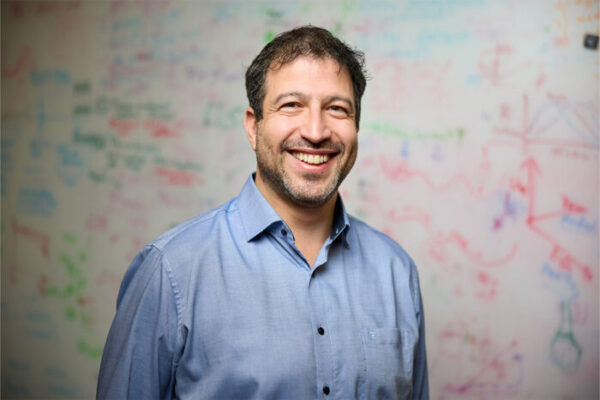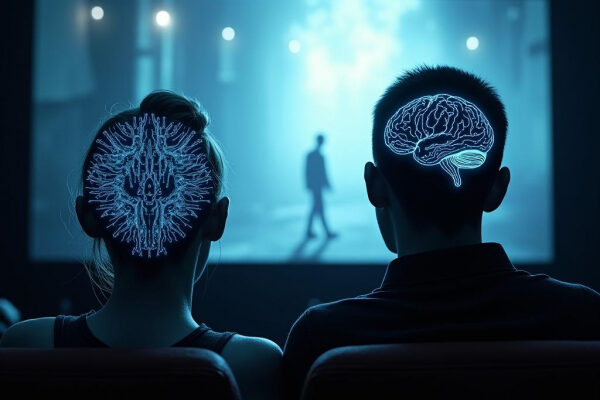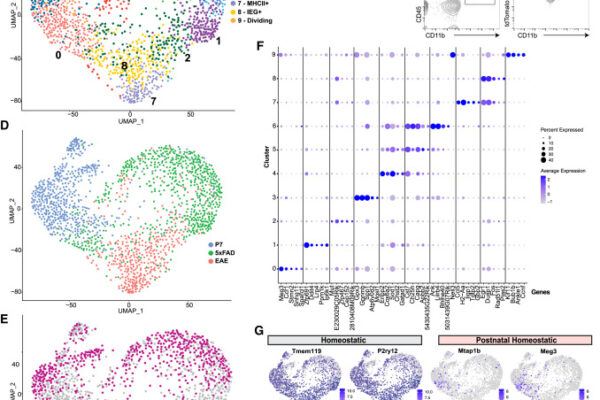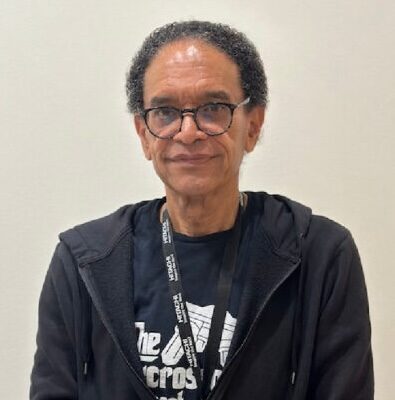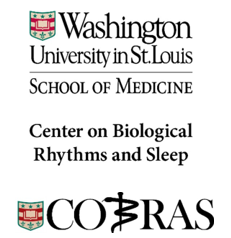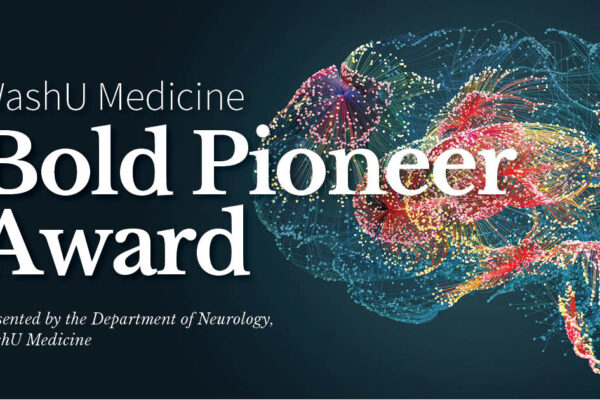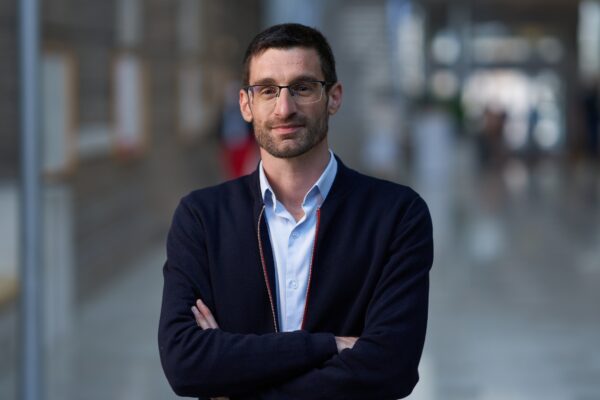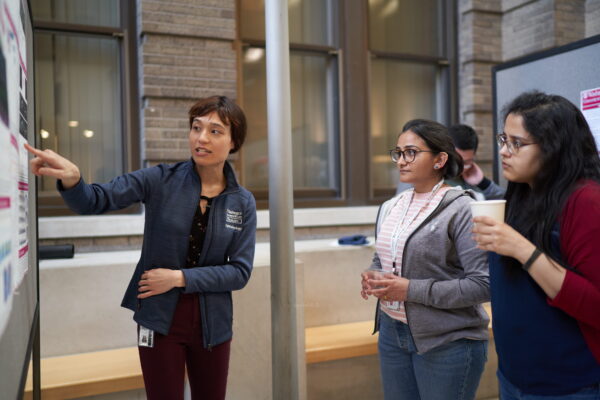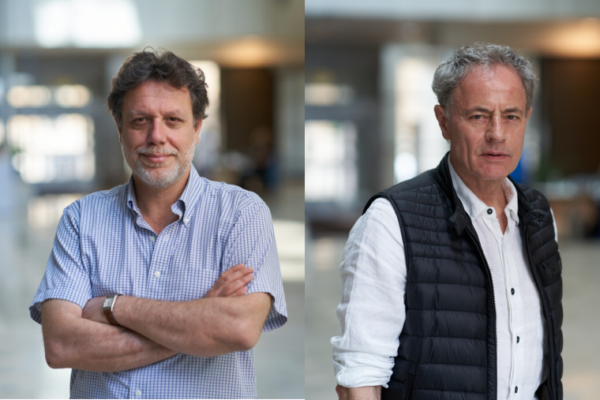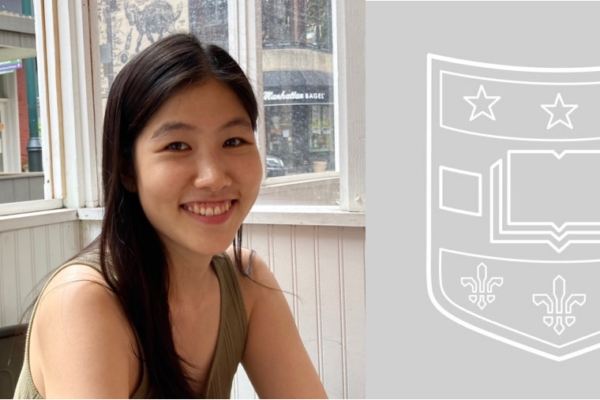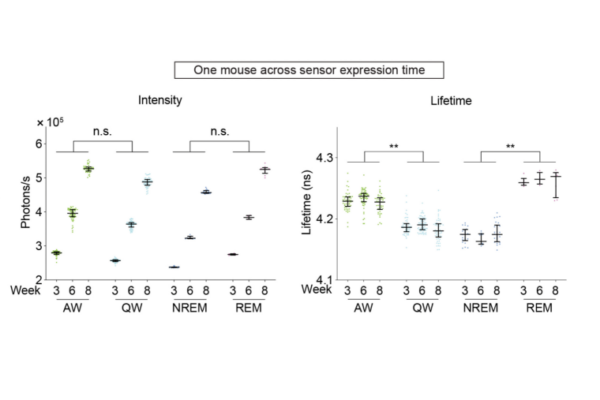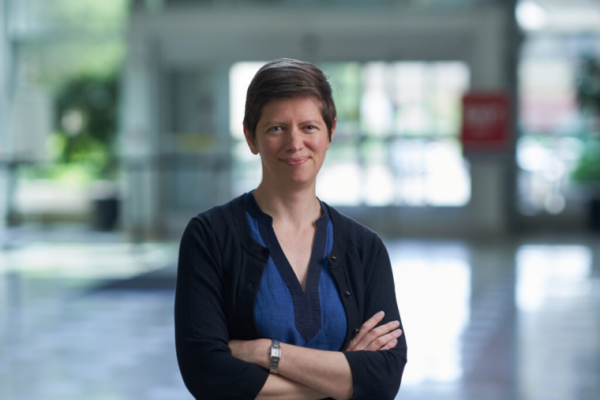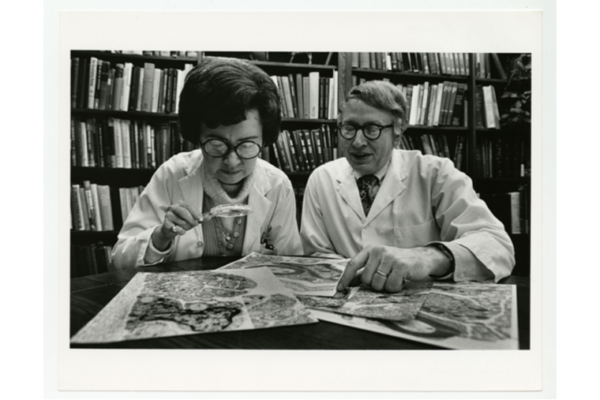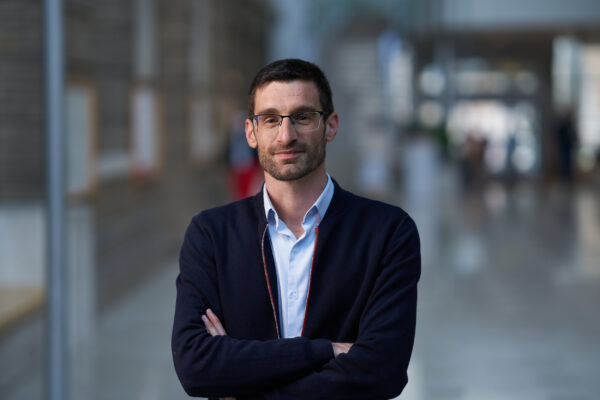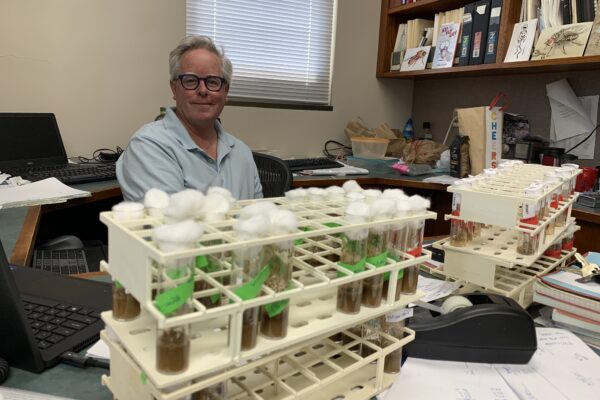Learn about the latest news and events going on in the department. You can also follow us on X @WashUMedNeuro and LinkedIn.
Kepecs awarded NIH Director’s Pioneer Award (Links to an external site)
Adam Kepecs, PhD, a professor of neuroscience and a professor of psychiatry at WashU Medicine, has been selected for a National Institutes of Health (NIH) Director’s Pioneer Award, to study how the brain’s neural circuits decode signals from the immune system and orchestrate adjustments in behavior and motivation.
Franken and Wessel win NIH grant to study how artificial and biological brains process video imagery (Links to an external site)
WashU assistant professor of neuroscience Tom Franken and professor of physics Ralf Wessel have secured a $427,625 grant from the National Institutes of Health to study how artificial neural networks and primate brains process and predict video imagery.
Li Lab study published in Immunity further explores microglial states (Links to an external site)
A recent study published in Immunity by the Li lab opens a new chapter for the study of microglial function in development and neurodegeneration with remarkable precision.
Rosa-Molinar named director of cellular imaging center, joins Department of Neuroscience faculty (Links to an external site)
Eduardo Rosa-Molinar, PhD, has been named the new scientific director of the Washington University Center for Cellular Imaging (WUCCI) and has joined the faculty of the Department of Cell Biology & Physiology and the Department of Neuroscience at the School of Medicine.
David Kim to receive Feldman Fellowship Award at COBRAS 3rd Annual Symposium
On Thursday, June 6th, David Kim, an undergraduate researcher with the Chen Lab, will be awarded the 2024-2025 COBRAS Feldman Fellowship to conduct research on sleep regulation and functions.
Now accepting applications for WashU Medicine Bold Pioneer Award! (Links to an external site)
The goal of the $10,000 WashU Medicine Bold Pioneer Award is to recognize and encourage early career investigators who have demonstrated bold, pioneering research that is high-risk by virtue of being fundamentally different from standard approaches. The intent is to encourage scientific research investigators to challenge status quo approaches by developing fundamentally different methods, approaches, […]
Thomas Papouin receives 2024 Dean’s Impact Award (Links to an external site)
Papouin, an Assistant Professor of Neuroscience, is acknowledged for his extraordinary efforts in guiding the career development of trainees.
Applications open for Computational Neuroscience Next Generation Symposium (Links to an external site)
Graduate students and postdocs are invited to apply for this opportunity to present your research and connect with our thriving computational and theoretical neuroscience community.
Camillo Padoa-Schioppa and Andreas Burkhalter elected to AAAS (Links to an external site)
Professors Burkhalter and Padoa-Schioppa are selected as fellows of the American Association for the Advancement of Science.
Hayoung Song to join WashU as CTCN Fellow
Song, who is completing her PhD at the University of Chicago, will focus on developing a computational understanding of high-level cognition.
WashU among top 10 academic institutions from Nature Index (Links to an external site)
The global rankings reflect research publication output in the health sciences.
Fluorescence lifetime imaging captures neuromodulator dynamics at multiple time scales
A new study from Yao Chen’s lab reveals that some fluorescent-intensity–based sensors also show fluorescence lifetime responses, expanding observations of neuromodulator activity over time and distance.
Tiny tweaks to neurons can rewire animal motion (Links to an external site)
Read Dr. Martha Bagnall’s comments in Quanta on a new study capturing the role of a potassium channel in the rattlesnake’s rattle.
Mary Bartlett Bunge, 92, Dies; Pioneer in Spinal Injury Treatment (Links to an external site)
New York Times obituary of former Washington University professor Dr. Mary Bartlett Bunge
Key regulator of decision-making pinpointed in brain (Links to an external site)
Findings shed light on mental illnesses, including obsessive-compulsive disorder, anxiety
How does waste leave the brain? (Links to an external site)
Professor Krikor Dikranian and Assistant Professor Peter Bayguinov among authors of new study in Nature describing a route that serves as a passageway to clear fluid waste from brain.
Introducing a new conceptual framework for astrocyte function
In Nature Neuroscience, Thomas Papouin and colleagues describe the role of astrocytes in “contextual guidance.”
Sleep disruption—whether from loss of sleep or “social jet lag”—affects thermoregulation
Fruit flies seek out warmer temperatures when they experience sleep deprivation or fragmentation or when faced with a shifted sleep schedule, similar to when people stay up late and sleep in on the weekend.
